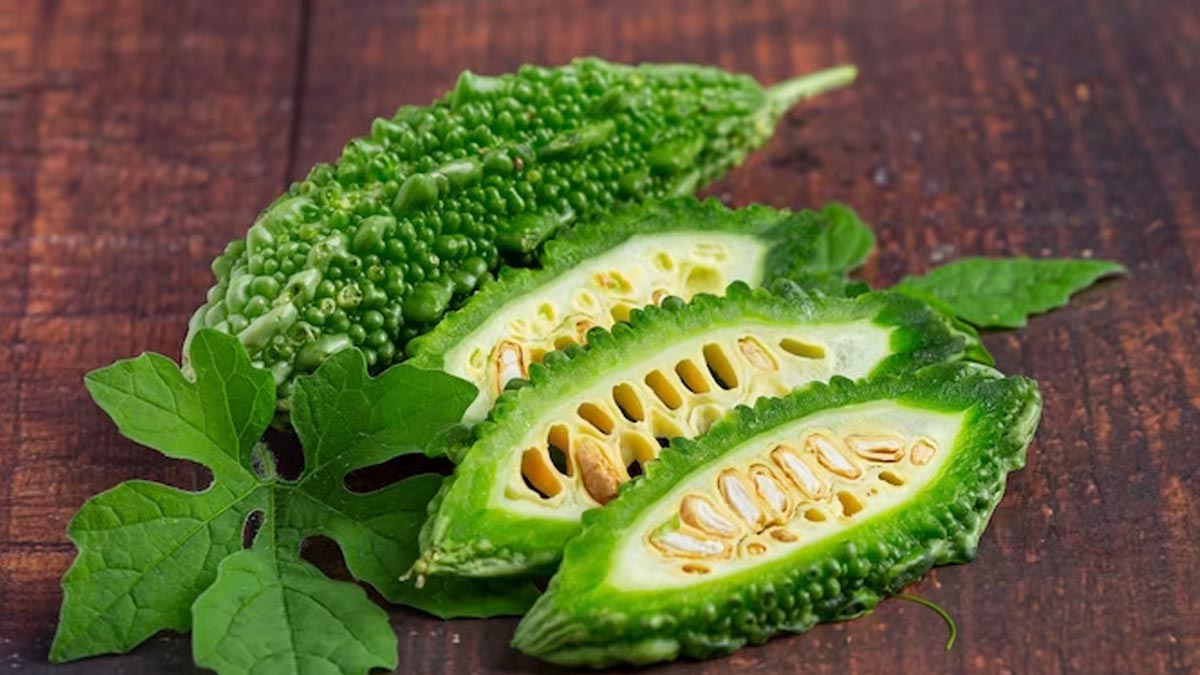
Diabetes is one of the most common health conditions that affects people globally. It affects how your body turns food into energy and occurs when the body doesn't use insulin properly. If not managed on time, it can lead to complications, such as cardiovascular diseases, nerve damage, and eye damage. If you are someone who is looking for ayurvedic remedies to manage your blood sugar levels, you’ve come to the right place. We spoke to our expert Dr Ganesh Chaudhary, Bachelor of Ayurvedic Medicine and Surgery (BAMS), PHC, Darbhanga, Bihar, who listed ayurvedic remedies to manage blood sugar levels naturally.
Ayurvedic Remedies To Manage Blood Sugar Levels

Bitter Melon
Bitter melon, also known as bitter gourd, is a well-known ayurvedic remedy for diabetes. Dr Chaudhary said, “It contains compounds that mimic insulin's effects, helping to lower blood sugar levels. You can consume bitter melon as a vegetable or in juice form for its potential benefits.”
Amla (Indian Gooseberry)
Dr Chaudhary added, “Amla is a powerhouse of antioxidants and vitamin C. It is known to enhance pancreatic function, which can aid in the regulation of blood sugar. You can consume amla as fresh fruit, juice, or supplements.”
Fenugreek
Fenugreek seeds are rich in soluble fibre and alkaloids that may help reduce blood sugar spikes. They can be soaked and consumed or used as a spice in cooking. Some people also take fenugreek supplements.
Also Read: Balancing Blood Sugar Scale: Expert Explains Hypoglycemia and Hyperglycemia Beyond Diabetes

Neem
Neem has antibacterial, antifungal, and blood-purifying properties. It may help lower blood sugar levels and improve overall health. Neem leaves can be consumed in various forms, such as capsules, powder, or tea.
Aloe Vera
Aloe vera gel may have a positive impact on blood sugar control. Dr Kumar said, “Drinking aloe vera juice, which is widely available in health food stores, can be a natural way to add this herb to your diabetes management plan.”
Holy Basil
Holy basil, popularly known as Tulsi, has adaptogenic properties and may help lower blood sugar levels by regulating insulin production. You can consume it as tea or take it in supplement form. In a study conducted by the Indian Journal of Clinical Biochemistry, fresh tulsi leaves added to the diet in a dose of 2 gm/kg BW for 30 days caused a significant reduction in blood sugar levels in the test group.

Giloy
This ayurvedic ingredient became widely recognised during the pandemic period as an immunity booster. But did you know it can help in managing your blood sugar levels too? This is because it acts as a hypoglycemic agent lowers blood sugar levels and improves insulin sensitivity. Blend one teaspoon of giloy powder with a cup of water and let it sit overnight. Consume it in the morning.
Shilajit
Dr Chaudhary said, “Shilajit can improve insulin sensitivity, which facilitates cellular response to insulin and blood sugar management. Diabetes is usually accompanied by chronic inflammation, hence its anti-inflammatory properties may be beneficial in this situation.”
Important Considerations To Keep In Mind
Dr Chaudhary has some important considerations to keep in mind before consuming any ayurvedic ingredient. Some of them are as follows:
- Consult a healthcare professional: Before incorporating any new herbs or supplements into your diabetes management plan, it is essential to consult with a healthcare provider, especially if you are already taking medications for diabetes.
- Individual response varies: Keep in mind that the effectiveness of ayurvedic herbs can vary from person to person. What is effective for one person might not have the same impact on another.
- Lifestyle matters: Managing diabetes goes beyond just taking herbs or supplements. A healthy lifestyle, including a balanced diet, regular physical activity, stress management, and adequate sleep, plays a crucial role in blood sugar control.
[Disclaimer: The information in this article is shared by a registered healthcare professional and is for informational purposes only. Hence, we advise you to consult your expert before adding anything to your diet, especially if you are dealing with any health conditions.]







